“I should be further along by now.” “Everyone else has it all figured out.” “I’m falling behind.” These thoughts used to creep into my head every single day. It wasn’t some loud, screaming panic just a quiet, nagging tension that whispered, You’re late. Like, I’d see my friends posting about their fancy jobs or dream weddings on Instagram, and suddenly I’m wondering why I’m still figuring out my career at 28. It’s that ache of feeling behind in life, a sneaky anxiety that slips into your thoughts even on good days, making you question if you’re doing enough (milestone anxiety) 😔
If you’re nodding along, you’re not alone. That feeling of being behind is super common, especially in your 20s and 30s when life feels like a race you didn’t sign up for. Why do we feel this way?

Is it just us, or is something bigger going on? And most importantly, how do we stop stressing and find our own pace? In this article, we’re gonna unpack the anxiety of feeling behind, why it hits so hard, and some real, practical ways to ease it. Plus, we’ll tackle those big questions about anxiety like why it feels random or if it’s forever so you can understand what’s going on in your head. Ready to stop racing and start living? Let’s dive in

Mental Wellness Test
Where Does Your Mind Need the Most Support?
Discover your emotional health in under 4 minutes.
Find out if what you’re feeling is:
burnout, anxiety,trauma
or just too many open tabs in your brain.
No pressure – Just clarity
Why Comparison Fuels Life Anxiety?
Our brains track social milestones like survival metrics: career, marriage, homeownership.
Social media magnifies this, creating constant reminders of perceived failure or delay.
What’s This Anxiety About Being Behind?
So, what exactly is this anxiety about feeling behind? It’s that sinking feeling you get when you think you’re not where you “should” be in life whether it’s your career, relationships, finances, or just figuring out who you are. Maybe you’re 30 and still renting while your high school buddy just bought a house. Or you’re single while everyone else seems to be getting engaged. It’s like you’re stuck in the slow lane while everyone else is zooming by.
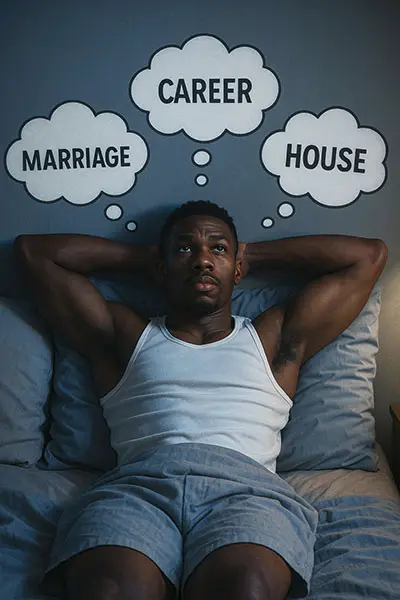
This anxiety is super common, especially among young adults. A 2020 survey by the American Psychological Association found that about 60% of people aged 25-35 feel behind in at least one area of their life, like career or relationships.
It’s not just you it’s a generational thing, amplified by social media and society’s obsession with milestones. But here’s the kicker: that feeling of being behind isn’t always based on reality.
It’s often more about perception than actual failure. 😊
This anxiety can show up as a low-grade hum in your head, making you feel restless or like you’re not enough. Sometimes it’s louder, like when you’re lying awake at night wondering why you haven’t “made it” yet. It’s not always a full-blown panic attack, but it can still mess with your mental health, leaving you feeling stuck or even a little lost
Why Saying No Feels So Hard & How to Set Guilt‑Free Boundaries
Why Do I Feel Like I’m Falling Behind?
Okay, so why does this feeling hit so hard? It’s not just random there’s a mix of stuff going on that makes us feel like we’re lagging. Here’s the breakdown:
Social Comparison
Social media’s a big culprit. You scroll through Instagram, see your friend’s new job or fancy vacation, and suddenly you’re like, “Why am I still stuck at this dead-end gig?” It’s not just you studies show that social media comparison can tank your self-esteem and spike anxiety. I remember seeing a college friend post about their promotion, and I spent the whole day feeling like a failure, even though I was happy with my job. It’s like social media’s a highlight reel, and we’re comparing our behind-the-scenes to everyone else’s best moments.
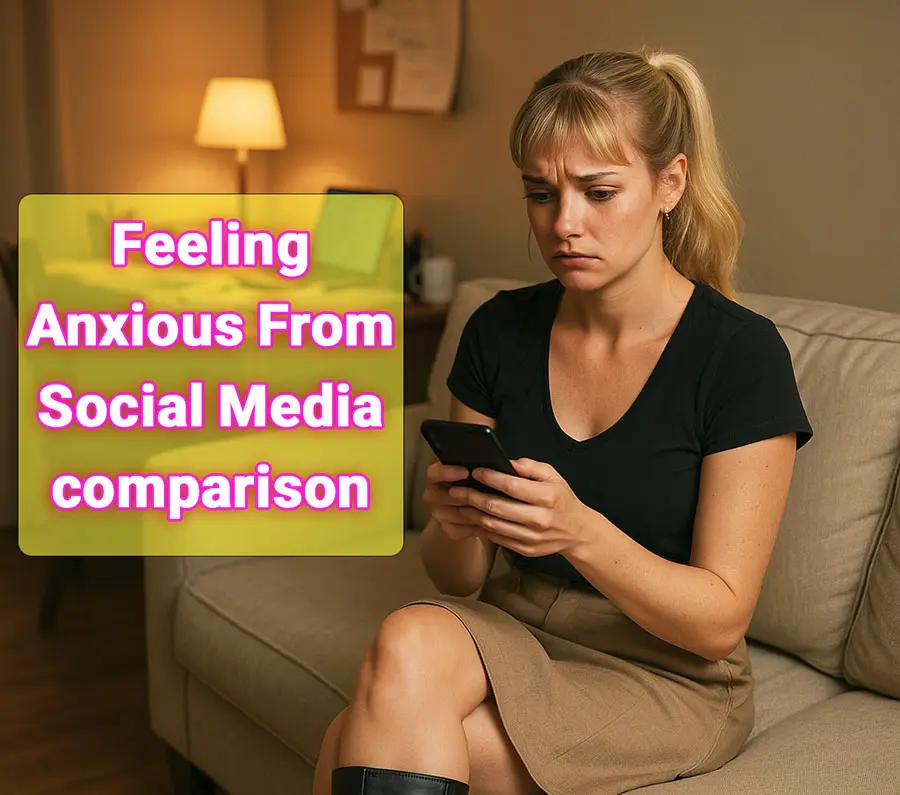
Societal Expectations
Society loves to push timelines on us graduate by 22, get married by 30, buy a house by 35. These “rules” are everywhere, from family dinners to TV shows. But life’s not a checklist, and those timelines don’t work for everyone. Healthline says these expectations can create a sense of urgency that fuels anxiety, especially in your 20s and 30s when you’re still figuring things out.
Personal Perfectionism
Some of us are our own worst critics. If you’re a perfectionist like me, you might set crazy-high standards like thinking you should have a corner office by 27. When you don’t hit those goals, it feels like you’re failing. I used to beat myself up for not having a “real” career yet, until I realized my definition of success was based on what I thought I should want, not what I actually wanted.

Life Transitions
Your 20s and 30s are full of changes new jobs, moving cities, breakups, starting over. These transitions can make you feel like you’re starting from scratch while everyone else is ahead. A friend of mine moved to a new city at 29 and felt like they were “behind” because they didn’t have a local friend group yet. But that’s just life it’s messy, and it’s okay to take time. 😊
How to Break the Comparison Spiral
- Remind yourself: life isn’t a synchronized race.
- Mute triggering accounts while you stabilize perspective.
- Journal your own progress beyond public milestones.
- Focus on internal values, not external timelines.
- Practice gratitude for present moments you once hoped for.
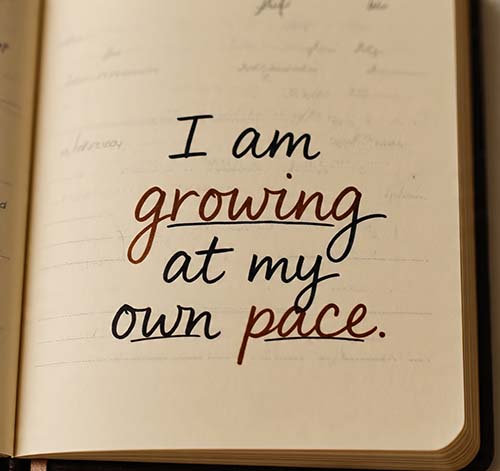
What Does True Anxiety Feel Like?
Let’s zoom out for a sec and talk about anxiety in general. Feeling behind can trigger anxiety, but what’s “true” anxiety like? According to the National Institute of Mental Health, anxiety disorders involve excessive worry or fear that’s hard to control and messes with your daily life. It’s more than just feeling nervous before a big meeting it’s a persistent, heavy feeling that sticks around.

True anxiety might show up as:
- Excessive Worrying: Like obsessing over whether you’re “behind” or not good enough.
- Restlessness: Feeling on edge, like you can’t relax no matter what.
- Fatigue: Being tired all the time, even if you’re sleeping okay.
- Trouble Concentrating: Your brain’s too busy worrying to focus on tasks.
- Sleep Issues: Trouble falling asleep or staying asleep because your mind’s racing.
If you’re feeling anxious “for no reason,” it might not be random. Subconscious thoughts, past experiences, or even a chemical imbalance could be at play. For example, I’d sometimes feel a vague sense of dread, like I was failing at life, even on days when everything was fine. Turns out, it was my brain picking up on old insecurities I hadn’t dealt with. If this sounds like you, it might be worth talking to a therapist to dig deeper

Your Pace Is Valid
There’s no single path to fulfillment. Your worth isn’t tied to timelines. You are not late you are living your own unfolding story.
What Does True Anxiety Feel Like?
Let’s zoom out for a sec and talk about anxiety in general. Feeling behind can trigger anxiety, but what’s “true” anxiety like? According to the National Institute of Mental Health, anxiety disorders involve excessive worry or fear that’s hard to control and messes with your daily life. It’s more than just feeling nervous before a big meeting it’s a persistent, heavy feeling that sticks around.
True anxiety might show up as:
- Excessive Worrying: Like obsessing over whether you’re “behind” or not good enough.
- Restlessness: Feeling on edge, like you can’t relax no matter what.
- Fatigue: Being tired all the time, even if you’re sleeping okay.
- Trouble Concentrating: Your brain’s too busy worrying to focus on tasks.
- Sleep Issues: Trouble falling asleep or staying asleep because your mind’s racing.
If you’re feeling anxious “for no reason,” it might not be random. Subconscious thoughts, past experiences, or even a chemical imbalance could be at play. For example, I’d sometimes feel a vague sense of dread, like I was failing at life, even on days when everything was fine. Turns out, it was my brain picking up on old insecurities I hadn’t dealt with. If this sounds like you, it might be worth talking to a therapist to dig deeper
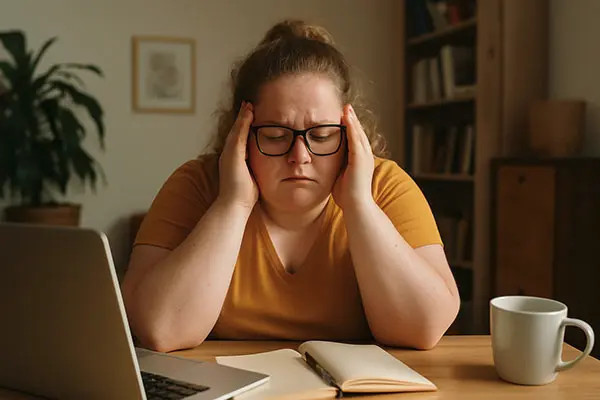
Practical Ways to Find Your Own Pace
Alright, so how do you stop feeling like you’re falling behind and start living at your own pace? Here are some real, doable strategies that’ve helped me and others:
Practice Self-Compassion
Be kind to yourself. You’re not “behind” you’re on your own unique journey. Kristin Neff, a self-compassion expert, says treating yourself like a friend can reduce anxiety. When I feel like I’m not enough, I remind myself, “Hey, you’re doing your best, and that’s okay.” Try writing down three things you’re proud of each day, even if they’re small, like making a killer sandwich. 😄
Limit Social Media
Social media’s a comparison trap. Try cutting back maybe an hour a day or unfollowing accounts that make you feel less-than.
I did a week-long Instagram detox, and it was like a weight lifted. My feed’s now full of artists and nature pics, not perfect lives I can’t match
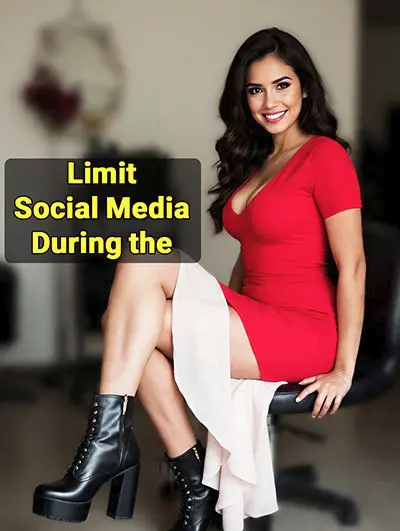
Set Realistic Goals
Break your big dreams into small, doable steps. Want a better job? Start by updating your resume. Want to travel? Save $20 a week. Celebrating small wins builds momentum. I started setting one tiny goal a day, like “email one client,” and it made me feel like I was moving forward.
Why Am I Falling Behind? Understanding the Anxiety and Finding Your Own Pace
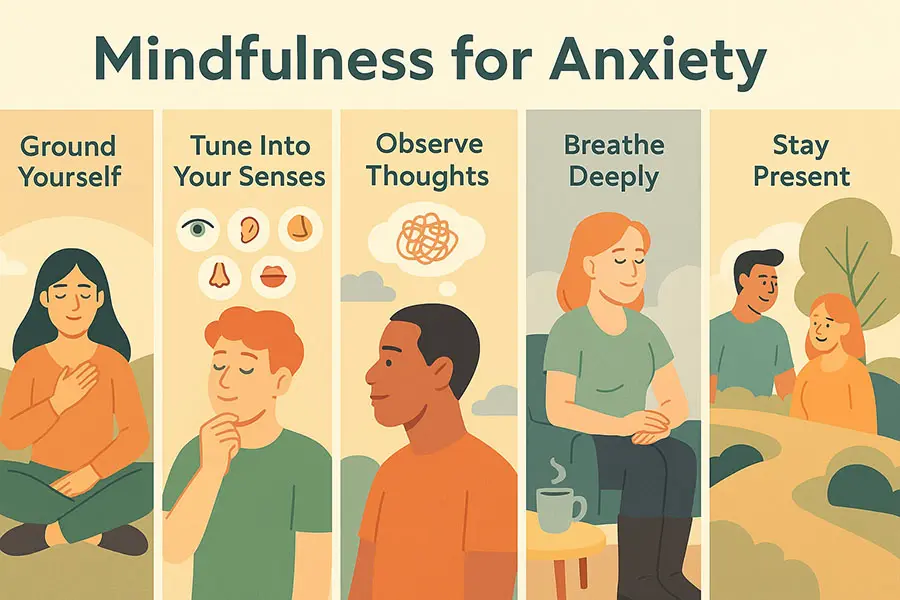
Focus on Personal Growth
Instead of comparing yourself to others, focus on your progress. Ask, “Am I better than I was last month?” I keep a journal where I track my growth, like learning a new skill or handling stress better. It’s like a little high-five to myself.
Seek Support
Talk to a friend, family member, or therapist about your feelings. Sometimes just saying, “I feel behind,” takes the edge off. I opened up to a friend about feeling stuck, and she admitted she felt the same way. It was such a relief to know I wasn’t alone
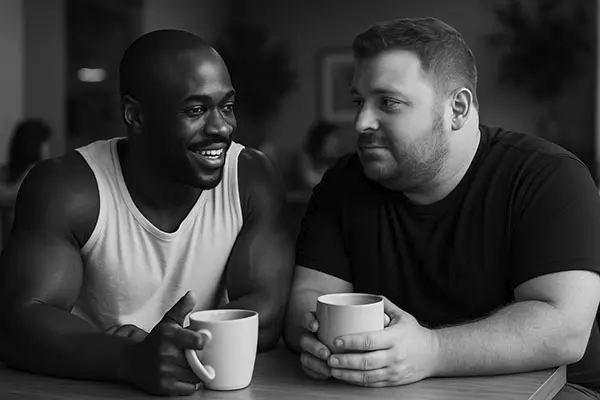
Practical Strategies to Ease Growth Anxiety
Ready to tame that anxiety? Here are some practical steps:
- Anchor Your Nervous System 🌿
- Try grounding techniques like box breathing (inhale 4, hold 4, exhale 4, hold 4).
- Use affirmations: “I’m safe to grow at my own pace.”
- Track internal progress, like feeling calmer in tough moments.
- Detox from Comparison Triggers 📵
- Limit social media time or unfollow accounts that spark envy.
- Follow creators who share real, messy growth stories.
- Spend time with people who don’t judge your pace.
- Normalize Plateaus 😌
- See rest as part of growth, not a setback.
- Understand that pauses help your brain integrate changes.
- Celebrate Micro-Wins 🎉
- Keep a journal of small victories, like better sleep or a kind self-talk moment.
- Reward consistency, not just big achievements.
- Build Shame Resilience 💪
- Challenge thoughts like “I’m behind” with “I’m learning at my pace.”
- Practice self-compassion: treat yourself like a friend.

For more grounding tips, see The Quiet Panic: When Anxiety Feels Like You’re Not Even Here. External resources like The Trevor Project’s mental health guides can also help.
Growth Anxiety in the LGBTQ+ Community
For LGBTQ+ folks, growth anxiety can hit harder due to unique challenges like discrimination or family rejection. Coming out or embracing your identity might feel like starting from scratch, making you worry you’re “behind” in finding love, career success, or self-acceptance.
I’ve seen friends in the community struggle with this, like one who felt they “wasted” years hiding their true self. Finding affirming spaces, like those offered by The Trevor Project, can help you feel seen and supported, turning your journey into one of strength.
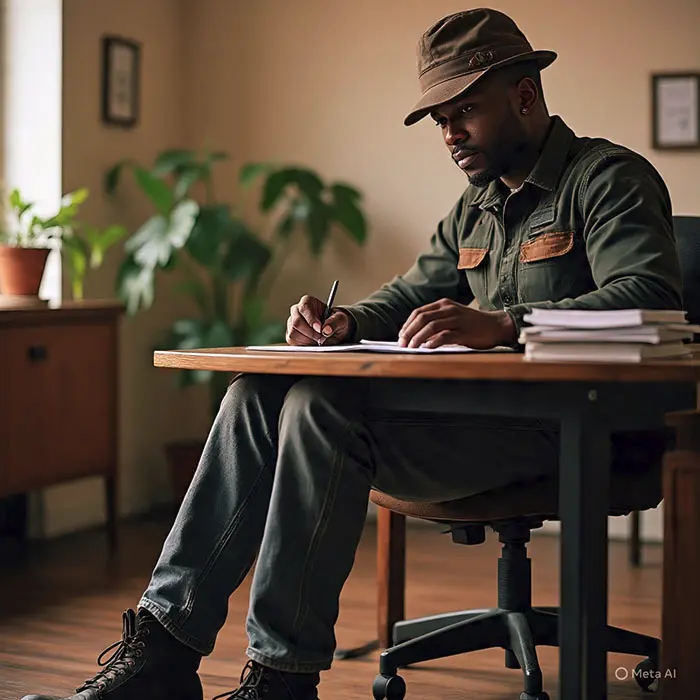
Answering Your Burning Questions About Anxiety
Let’s tackle those big questions about anxiety to help you understand what’s going on:
Why Do I Feel Anxious for No Reason?
Sometimes anxiety feels random because it’s triggered by subconscious thoughts or past experiences. Like, maybe you’re stressed about work but don’t realize it until bedtime. It could also be a chemical imbalance your brain’s serotonin or dopamine might be off. If it’s persistent, a therapist can help you figure out the root.
Am I Going to Have Anxiety for the Rest of My Life?
Not necessarily. Anxiety can be managed with therapy, medication, lifestyle changes, or a mix of those. Many people find their symptoms get way better over time. I used to think my anxiety was forever, but therapy and mindfulness have made it so much more manageable.
Can I Live Long with Anxiety?
Absolutely, especially if you manage it. Chronic anxiety can stress your body, raising risks for things like heart disease, but with self-care like exercise, sleep, and therapy you can live a long, healthy life. It’s about working with your brain, not against it.
Ultimate Mental Wellness Test: Discover Emotional Health Just in 3 Min
Ever wonder where you stand with your mental health? That’s where our quick question Mini Mental Health Check comes in. It’s like a quick peek into your brain, giving you insights into your anxiety, burnout, and self-esteem levels.
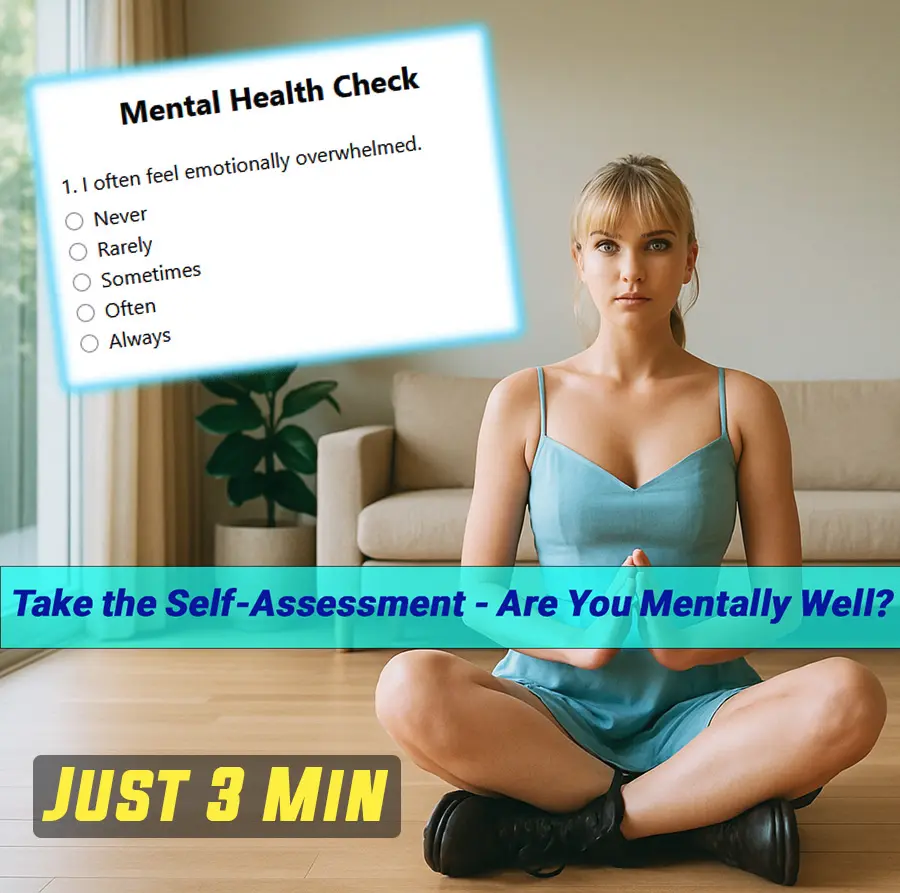
Was I Born with Anxiety?
Anxiety can have genetic roots, so if it runs in your family, you might be more prone to it. But environment like stress or trauma plays a huge role too. Think of it like a recipe: genetics might be the ingredients, but life events stir the pot.
Why Do I Feel Like I’m Not Here Mentally?
This could be dissociation, a common anxiety symptom where you feel disconnected from reality, like you’re watching yourself from outside. It’s your brain’s way of coping with stress. I’ve had moments where I felt “not here,” like during a stressful meeting. Grounding techniques, like focusing on your senses, can help.
Am I Depressed or Just Sad?
Sadness is a normal emotion that comes and goes, like feeling down after a bad day. Depression is deeper persistent low mood, loss of interest in things you love, and physical symptoms like fatigue. If you’re feeling low for weeks or it’s affecting your life, talk to a pro. I thought I was just sad for a while, but therapy helped me see it was more.
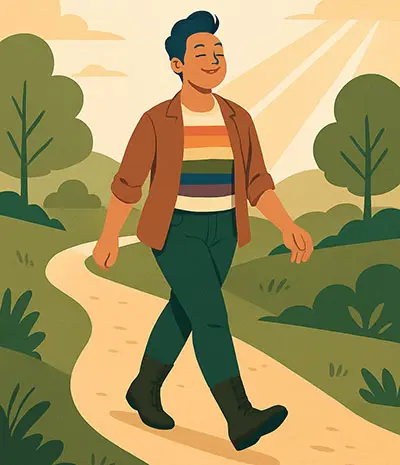
Can Anxiety Cause Deja Vu?
Not directly, but anxiety can mess with your perception, making things feel familiar or unreal, which might feel like deja vu. True deja vu is more neurological, but stress can amplify weird sensory experiences. If it’s frequent, check with a doctor to rule out other causes
Conclusion
Feeling behind in life is like carrying a backpack full of “shoulds” that weigh you down. But here’s the truth: there’s no universal timeline for success or happiness. Your path is yours, and it’s okay to move at your own pace. By practicing self-compassion, cutting back on comparison, and focusing on your own growth, you can ease that anxiety and start trusting your journey.
If you’re feeling stuck, don’t be afraid to reach out to a f riend, a therapist, or even just your journal. You’re not behind; you’re exactly where you need to be to grow into who you’re meant to be. So, take a deep breath, give yourself a little grace, and keep going. You got this 😊
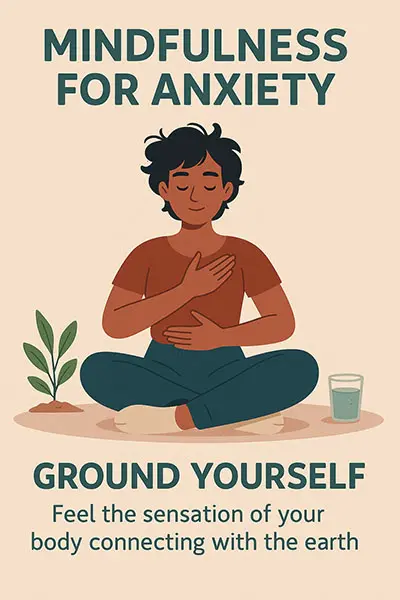
Citations:
- American Psychological Association: The Stress in America™ 2020 report on rising national stress levels and strategies to manage them
- Healthline: Covers research linking social media usage to higher anxiety and depression
- National Institute of Mental Health (NIMH): Overview of anxiety disorders, prevalence, and treatment options
- Psychology Today: Introduces self-compassion as a practical tool for resilience and stress reduction
- Verywell Mind: Lists key physical and psychological signs of anxiety disorder
Related articles I recommend you don’t miss:
Q&A
Life isn’t a race it’s a spiral. What feels like being behind is often just taking a different route. Your worth has nothing to do with timelines.
Try shifting the focus from “where they are” to “what matters to me.” The more you reconnect with your values, the quieter the comparisons get.
It’s the fear you’re not meeting invisible deadlines in career, love, healing while everyone else seems ahead. It’s heavy, but you’re not the only one carrying it.
Actually, urgency often leads to burnout not progress. Letting go helps you move with intention instead of panic. Rest ≠ laziness.
Be gentle with yourself. Limit comparison triggers (like social media), set one small goal, and remind yourself: forward is forward, even slowly.
That might be dissociation your brain’s way of protecting you from overload. It’s common in anxiety, and therapy can help you feel grounded again.

How to Start Finding Your Own Pace
Time needed: 15 minutes
How to Start Finding Your Own Pace
- Reflect on Your Values
Write down what matters to you family, creativity, peace and focus on those instead of external milestones.
- Limit Social Media
Take a break or unfollow accounts that trigger comparison.
- Set Small Goals
Pick one achievable goal, like updating your resume or saving $10 a week.
- Practice Self-Compassion
Write down three things you’re proud of each day, no matter how small
- Seek Support
Talk to a friend or therapist about your feelings to gain perspective
- Track Your Progress
Keep a journal to note your growth and celebrate small wins.
✨ Last updated on 13.08.2025
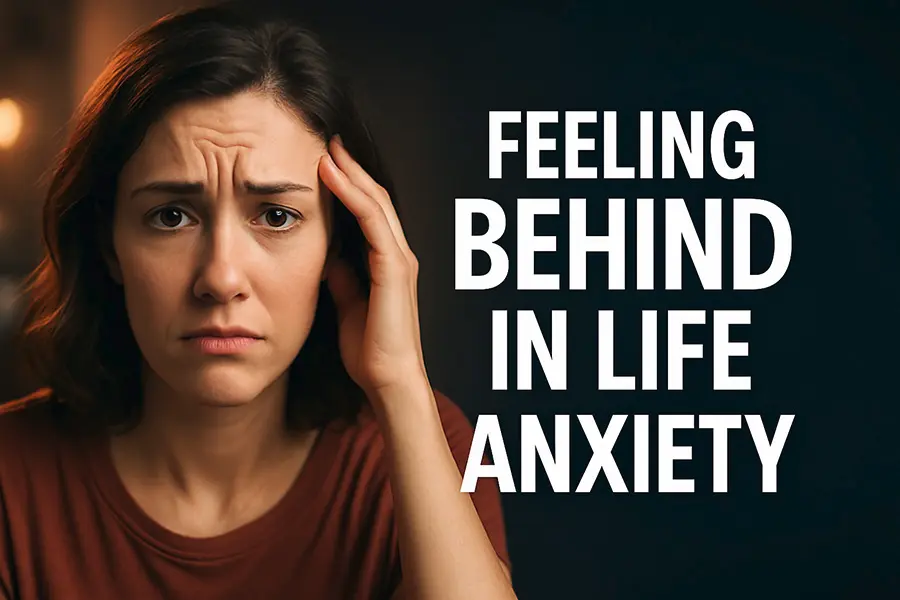
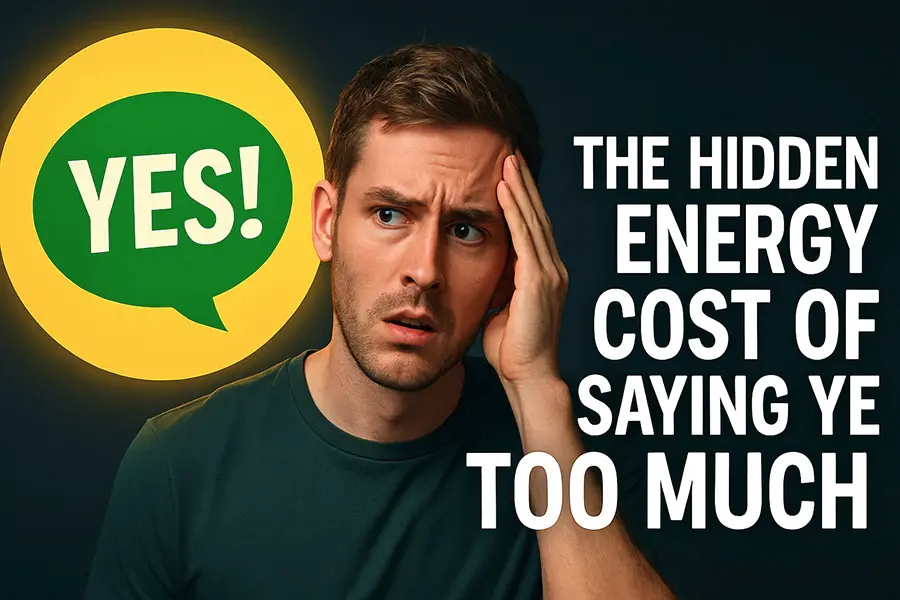
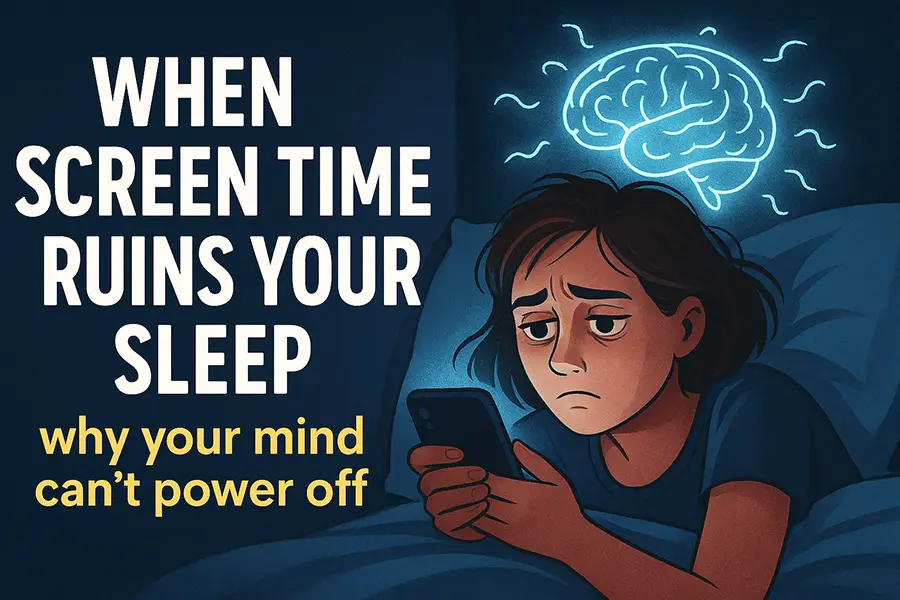

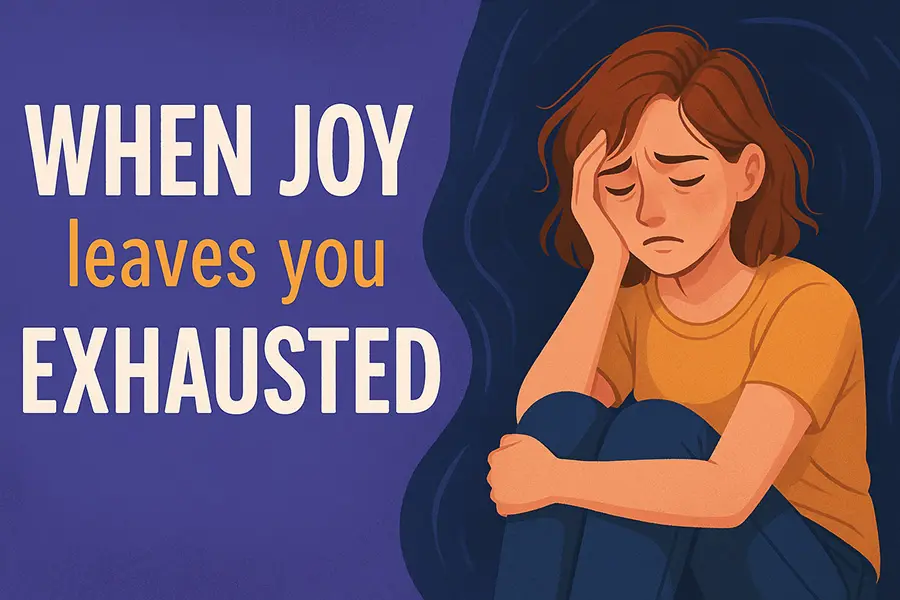
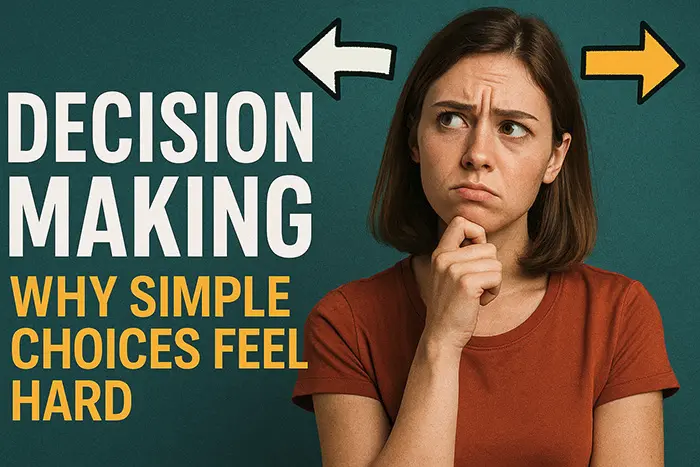
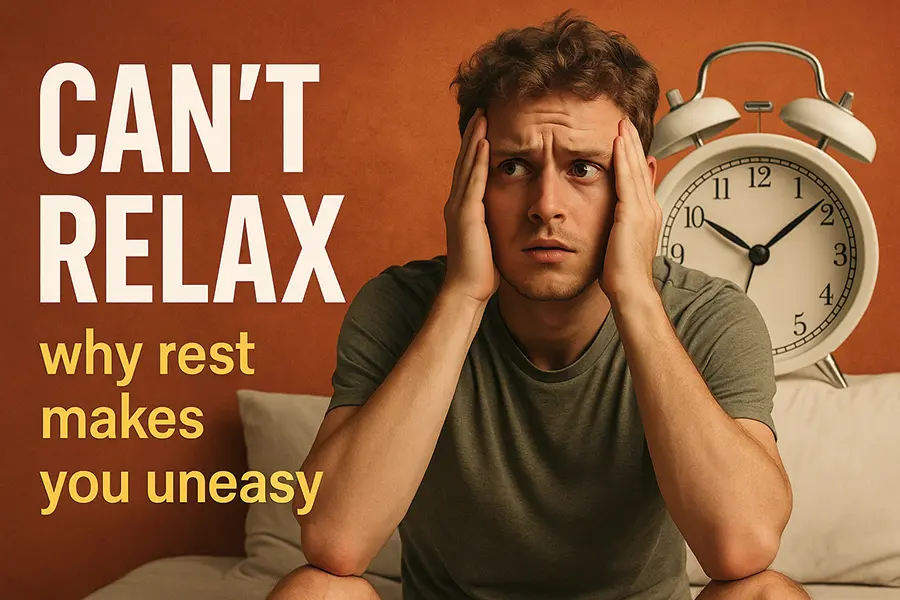
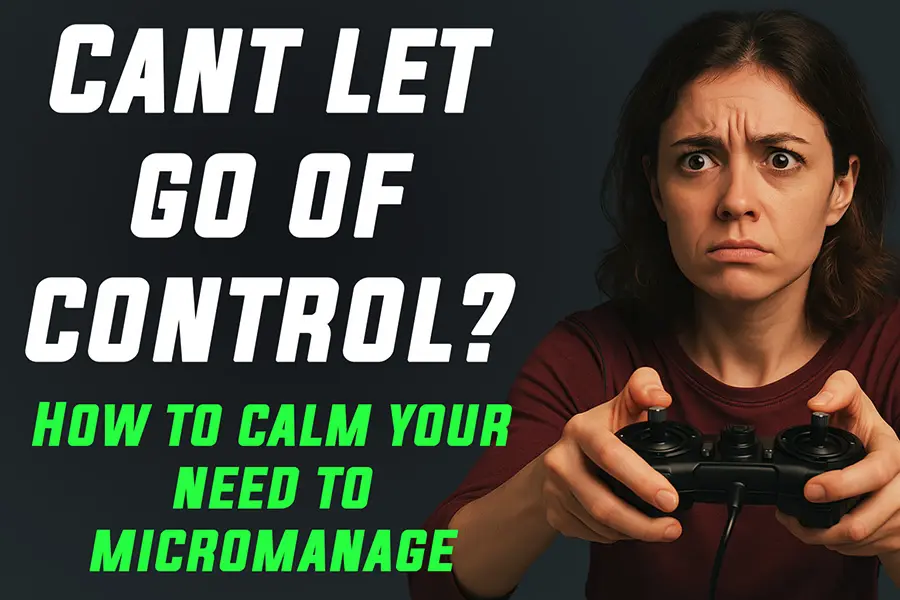
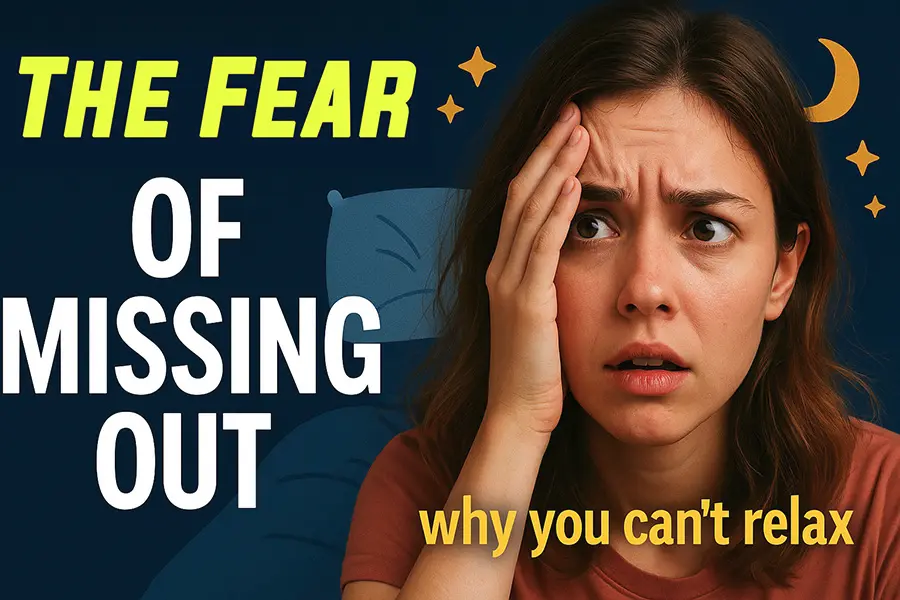
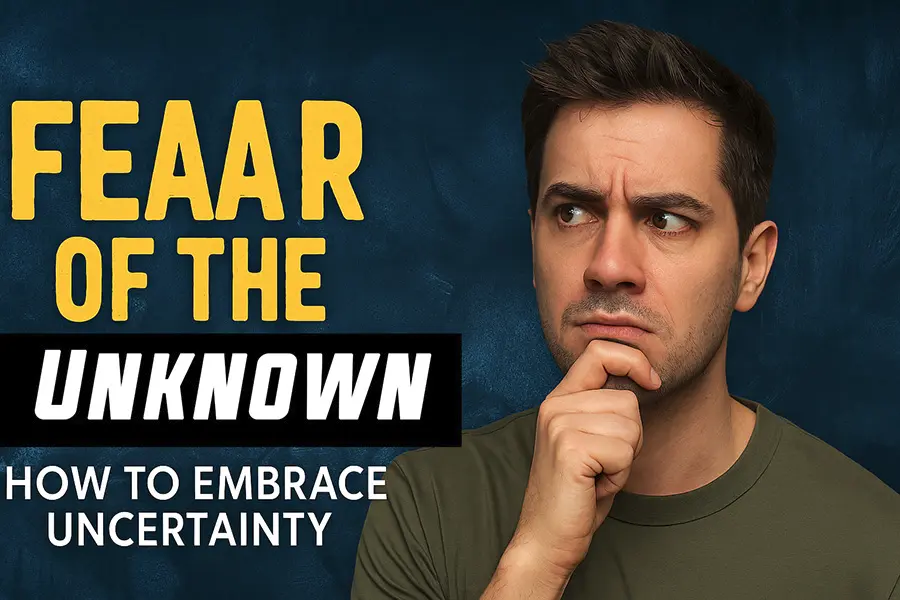
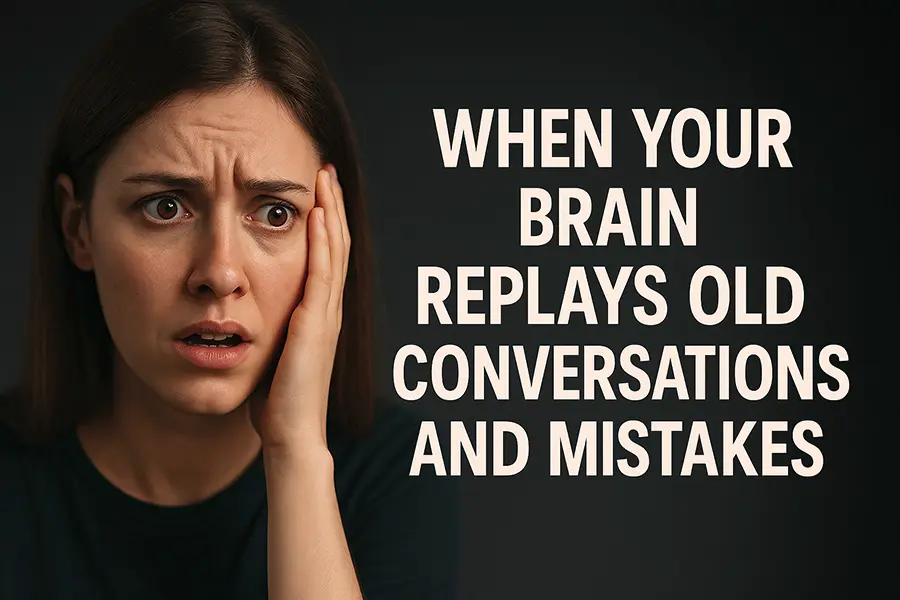
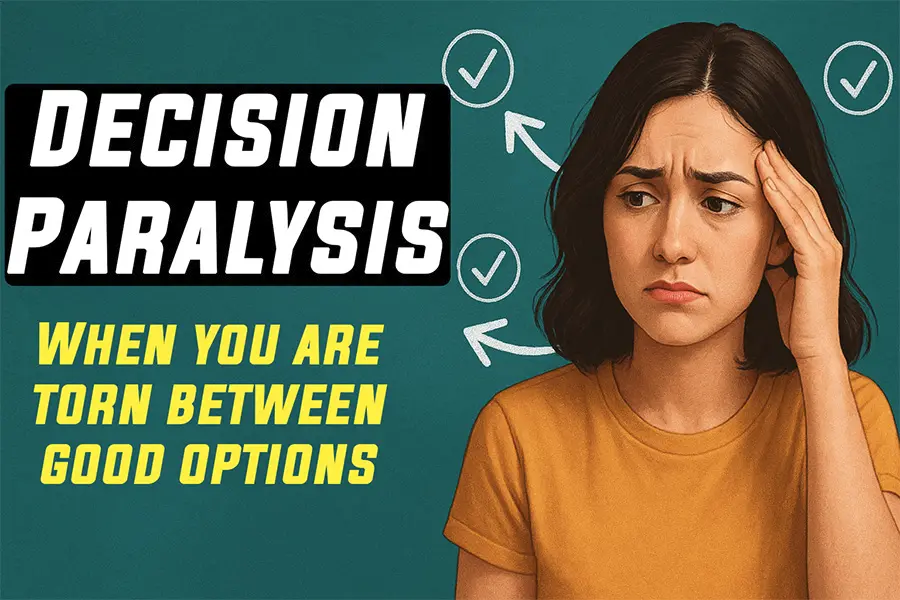










Leave a Reply